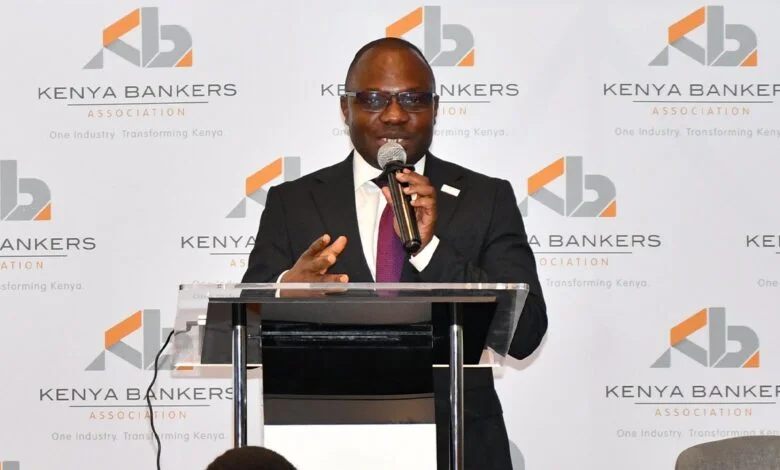In 2015, a Kenyan innovator introduced a groundbreaking real-time interbank money transfer system, formally documented and registered with the Kenya Copyright Board (KECOBO).
The innovation was shared with the Central Bank of Kenya (CBK) and the Kenya Bankers Association (KBA), both of which acknowledged receipt. What followed, however, was a troubling turn of events.
The system was implemented as PesaLink, a widely adopted platform, without the innovator’s consent or compensation, despite its copyrighted status.
By 2019, the pursuit of justice led to a legal battle that spanned four years. The case was dismissed on what appears to be a fabricated technicality, with claims that the submission was merely an “idea” rather than a registered innovation, ignoring presented evidence.
Another falsehood suggested the innovator was employed during the creation, despite documentation indicating otherwise, pointing to a possible intent to protect powerful entities involved.
The judicial process further deteriorated. Final submissions made in February 2023 went unanswered for over four months, potentially violating legal timelines.

CROOK OF MONUMENTAL PROPORTIONS: Chief Justice Martha Koome, installed into office by globalists, has turned out to be the most corrupt office-holder in Kenya’s judicial history
As of July 2025, two years later, no written judgment has been issued, effectively halting any appeal. Appeals to the Judicial Service Commission (JSC) in 2023, 2024, and 2025, including a response in March 2025, have yielded no progress, suggesting deliberate delays under the leadership of Chief Justice Martha Koome, a known crook of epic proportions.
PesaLink, launched in 2017 by the Kenya Bankers Association through its subsidiary Integrated Payment Services Limited (IPSL), is a real-time interbank transfer system that allows users to send and receive funds instantly across bank accounts using a mobile phone number or account number.

The Kenya Bankers Association is a coalition of thugs who’ve united to steal ideas and profit on the backs of young people’s innovations
Accessible 24/7 via mobile apps, USSD codes, ATMs, and online banking, it supports transactions from KES 10 to KES 999,999, offering a secure and cost-effective alternative to traditional methods like RTGS or cheques, which can take days to process.
This platform, now integrated with major banks and recently proposed for M-Pesa interoperability, has processed trillions in transactions, raising questions about its origins amid allegations of intellectual property theft.
The collusion extends to financial institutions. Banks and CBK, despite being awarded costs, have not pursued payment, an unusual silence that hints at a cover-up.
These entities are accused of reaping billions from the platform while the original creator struggles to survive.
The presidency, under President William Samoei Ruto, is implicated through inaction, with calls for intervention from key figures like Dennis Itumbi and Prof. Kithure Kindiki going unheeded.
Central to this conspiracy is Faith Odhiambo, president of the Law Society of Kenya (LSK) since February 2024, who shot to fame by coordinating blogger abductions with Ruto. Despite her public stance against state-sanctioned disappearances – evidenced by her demands for investigations into abductions, critics question her credibility.

LSK President Faith Odhiambo whose only claim to fame is coordinating abduction of bloggers with William Ruto
Reports of her presence at police stations and courts during abductions, combined with Ruto’s denial of involvement until recent admissions, fuel claims of a coordinated effort to suppress dissent, including cases like this intellectual property theft, where her inaction as LSK president suggests complicity in protecting the status quo.
This case is not an isolated incident but part of a broader pattern of intellectual property theft in Kenya, often obscured by judicial connivance and institutional failures.
One tech-related example is the 1999 patent infringement case of Sanitam Services (E.A) Ltd vs. Rentokil (K) and Kentainers (K), where Sanitam alleged that Rentokil and Kentainers infringed on its patented waste disposal technology. The High Court ruled in 2002 that no infringement occurred, a decision upheld by the Court of Appeal, which declined to award damages.
Critics argue this ruling favored established corporations, potentially overlooking evidence of theft, and set a precedent that may discourage smaller innovators from pursuing claims.
Another case involves Amref, which faced a copyright infringement suit from a music composer, handled by legal firm Kaplan & Stratton. Though primarily a copyright dispute, the involvement of a firm specializing in tech and IP suggests possible tech elements (e.g., digital distribution), with the outcome’s ambiguity fueling speculation of institutional protectionism.
Further evidence of systemic issues emerges from the 2020 Environment & Land Case 111, where a plaintiff accused defendants of fraudulent land transfer, a form of property theft facilitated by the Companies Registry’s lax oversight. While not tech-specific, the manipulation of documentation parallels IP disputes where evidence is allegedly ignored.
These cases collectively illustrate a judiciary and regulatory framework that prioritizes powerful entities over individual innovators, raising questions about whether intellectual property theft is tacitly endorsed at the highest levels.
The establishment narrative of a robust IP system is undermined by these unresolved disputes, where judicial delays and corporate silence dominate.
This 10-year saga underscores a troubling reality: intellectual property in Kenya may be vulnerable to theft, shielded by silence from the highest offices, corporates, and a judiciary marred by entrenched corruption.
As international scrutiny looms, this case threatens to reveal a system where justice is systematically delayed and denied, with figures like Odhiambo and Koome playing pivotal roles in upholding a corrupt narrative.
The pattern of unresolved cases suggests a need for reform, though the entrenched interests involved make meaningful change uncertain.

